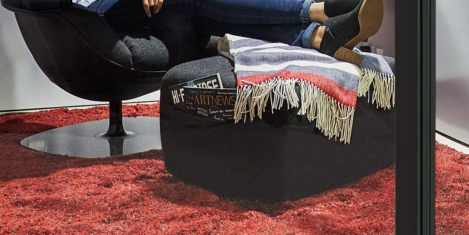October 11, 2018
How the media oversold standing desks as a fix for inactivity at work
Sitting is so culturally ingrained at work, at the wheel, in front of the TV and at the movies, it takes a great effort to imagine doing these things standing up, let alone pedalling as you work at a bike desk. So, when the world’s first specific guidelines on sitting and moving at work were published, they generated headlines such as: Abandon your chair for four hours to stay healthy, office workers are told and: Stand up at your desk for two hours a day, new guidelines say. But what many media reports did not mention was the guidelines were based on limited evidence. They were also co-authored by someone with commercial links to standing desks (desks you raise and lower to work at standing or sitting), a link not declared when the guidelines were first published in a journal. Media reports also overplayed the dangers of sitting at work, incorrectly saying it wiped out the benefits of exercise. Our new study reveals the nature of this media coverage and its role in overselling standing desks as a solution to inactivity at work.








 The majority (86 percent) of UK office workers claim they are more likely to be told off for forgetting to do menial tasks, like emptying or loading the dishwater and keeping their workplace tidy, than complying with GDPR policies, according to a new poll which assessed whether GDPR is being taken seriously by UK office workers since its introduction in May of this year. The study from Fellowes found that only 14 percent of workers have been given a ticking off about careless handling of confidential data, while 25 percent claim office chores, like emptying or filling the dishwasher, has landed them in the hottest water. The data, collected from over 1,000 UK office workers in July 2018, also reveals that many are more likely to be challenged about missing deadlines and being late (17 percent) than ensuring they are compliant with GDPR.
The majority (86 percent) of UK office workers claim they are more likely to be told off for forgetting to do menial tasks, like emptying or loading the dishwater and keeping their workplace tidy, than complying with GDPR policies, according to a new poll which assessed whether GDPR is being taken seriously by UK office workers since its introduction in May of this year. The study from Fellowes found that only 14 percent of workers have been given a ticking off about careless handling of confidential data, while 25 percent claim office chores, like emptying or filling the dishwasher, has landed them in the hottest water. The data, collected from over 1,000 UK office workers in July 2018, also reveals that many are more likely to be challenged about missing deadlines and being late (17 percent) than ensuring they are compliant with GDPR.












 Employers considering new flexible working options for their employees are concerned about the security and management implications, according to a recent poll, despite the fact that staff now have the legal right to request flexible arrangements. The survey of medium sized businesses, carried out for RSM by YouGov, found that over the next five years, three quarters of respondents were considering introducing flexible terms of employment, allowing workers to work outside 9 to 5 or increasing the use of remote working.
Employers considering new flexible working options for their employees are concerned about the security and management implications, according to a recent poll, despite the fact that staff now have the legal right to request flexible arrangements. The survey of medium sized businesses, carried out for RSM by YouGov, found that over the next five years, three quarters of respondents were considering introducing flexible terms of employment, allowing workers to work outside 9 to 5 or increasing the use of remote working.









October 5, 2018
Developing a resilient mindset to cope with stress
by Portia Hickey • Comment, Wellbeing
More →